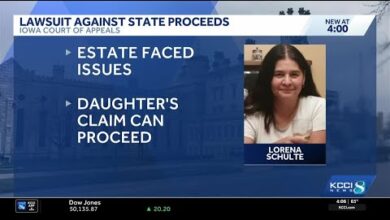Nurses call for greater public health spending ahead of budget

Nurses are among those that have urged the government to increase funding for public health ahead of this month’s budget.
In an open letter to the prime minister and the chancellor, 47 health experts and organisations have called for investment in public health services to achieve the government’s policy ambitions.
“Improving the health of the nation requires a bold vision, strong leadership, and political will”
Open letter
The Royal College of Nursing (RCN), Institute of Heath Visiting (iHV) and School and Public Health Nurses Association (SAPHNA) are among the signatories of the letter, dated 7 October.
It comes as the Treasury is due to announce the autumn budget on 30 October, in which it will set out proposals for health and care spending for this financial year.
The letter sent by public health organisations warned that austerity and the Covid-19 pandemic had left “lasting scars”, which were impacting health and care.
Signatories praised the “positive start” by the new Labour government on improving public health, including the formation of the Child Poverty Taskforce and a commitment to restrict junk food advertising and increase the age of sale of tobacco.
However, they argued that a “coherent, cross-government approach” to public health was needed to improve the nation’s health.
The letter said every government department must play its part in achieving a healthier society, using tax, regulation and policy to tackle some of the biggest public health challenges.
In addition, organisations called for increased investment at local level.
The letter noted that the public health grant, which is used to fund essential nursing services like sexual health and drug and alcohol, had been cut by 28% over the last 10 years.
“This has meant difficult decisions to downsize, or even close, vital services have had to be made,” it said.
“Furthermore, the most deprived areas have been most severely affected by these cuts, causing the already unacceptable gap in outcomes to widen even further.”
The majority of everyday spending on public health comes via this ring-fenced grant, which is allocated by central government to local authorities.
Earlier this year, the former public health minister Andrea Leadsom confirmed that councils would receive a 2% uplift this year, increasing the grant to £3.6bn.
This was criticised at the time by public health nurses, who warned that it represented another cut to funding and “blow” to services.
Now, signatories of the letter have argued that a £1.4bn increase is needed to restore the public health grant back to its 2015-16 levels.
The letter concluded: “Improving the health of the nation requires a bold vision, strong leadership, and political will.
“We urge you to prioritise public health, recognising it as a fundamental pillar of economic growth and national prosperity, and commit to the necessary investment and action that will secure a healthier, more equitable future for the nation, and enable everyone to live healthier lives for longer.”

Alison Morton
Alison Morton, chief executive of the iHV, said investing in public health services was “not a quick fix” but it was time to ensure children get the best start in life.
She added: “We stand at a crossroads where we urgently need to look beyond ‘firefighting’ and take a new direction to tackle the crippling costs of ‘getting it wrong’ as spending on costly late intervention is soaring out of control.
“The good news is that there is an army of dedicated practitioners across the health, education and social care system ready to play their part in building a better future for all our children.”
Separately, SAPHNA has been leading the ‘school nurse in every school’ campaign, which has lobbied the government to reverse the cuts to the school nursing workforce.
The organisation this week hand-delivered the petition to 10 Downing Street, in the hope that it would lead to greater investment in school nursing services.
The government was contacted for comment.







